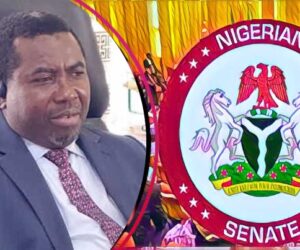A Zambian court has sentenced two men to two years in prison for attempting to use witchcraft to kill President Hakainde Hichilema, in a case that has gripped national attention as the first of its kind against a sitting head of state.
Magistrate Fine Mayambu handed down the ruling in Lusaka, convicting Zambian national Leonard Phiri and Mozambican citizen Jasten Mabulesse Candunde under the country’s colonial-era Witchcraft Act. The men were arrested in December 2024 with charms in their possession, including a live chameleon.
“It is my considered view that the convicts were not only the enemy of the head of state but were also enemies of all Zambians,” Magistrate Mayambu said.
Prosecutors told the court that the pair had been hired by a fugitive former member of parliament to bewitch President Hichilema. Both men insisted they were traditional healers, but the court rejected the defence, ruling that their demonstrations and admissions constituted evidence of practising witchcraft.
According to the judgment, Phiri showed investigators how pricking a chameleon’s tail during a ritual would allegedly cause death within five days.
The men were convicted on two counts: professing witchcraft and possessing charms. While the latter carried a six-month sentence, both punishments will run concurrently, leaving the men to serve two years in prison from the date of their arrest.
Their lawyer, Agrippa Malando, had pleaded for leniency on the grounds that they were first-time offenders and requested a fine instead of imprisonment. The court dismissed the plea.
Magistrate Mayambu stressed that while witchcraft is not scientifically proven, belief in it is widespread in Zambia and across Africa. The law, enacted in 1914 during colonial rule, was intended to protect communities from fear and social harm caused by those claiming supernatural powers.
“The question is not whether the accused are wizards or actually possess supernatural powers,” Mayambu said. “It is whether they represented themselves as such, and the evidence clearly shows they did.”
Legal experts note that prosecutions under the Witchcraft Act are rare. Lawyer Dickson Jere explained that while seldom enforced, the law has historically shielded vulnerable groups—such as elderly women—from mob justice in cases where they were accused of causing deaths through sorcery.
President Hichilema, who has openly dismissed beliefs in witchcraft, has not commented on the case.
The ruling comes at a time when witchcraft continues to feature in Zambia’s political and social discourse. The unresolved burial dispute over former President Edgar Lungu, whose body remains in South Africa months after his death, has fuelled speculation of “occult” motives—claims the government has firmly denied.
Despite modernisation, witchcraft retains a powerful grip on popular imagination in Zambia, with cases such as this sparking heated national debate about tradition, law, and governance.
Melissa Enoch
Follow us on:








